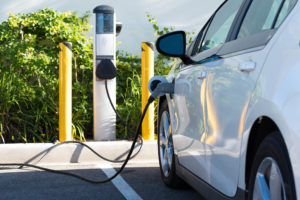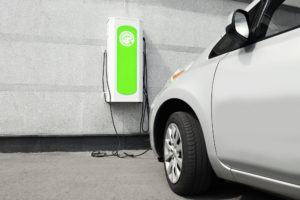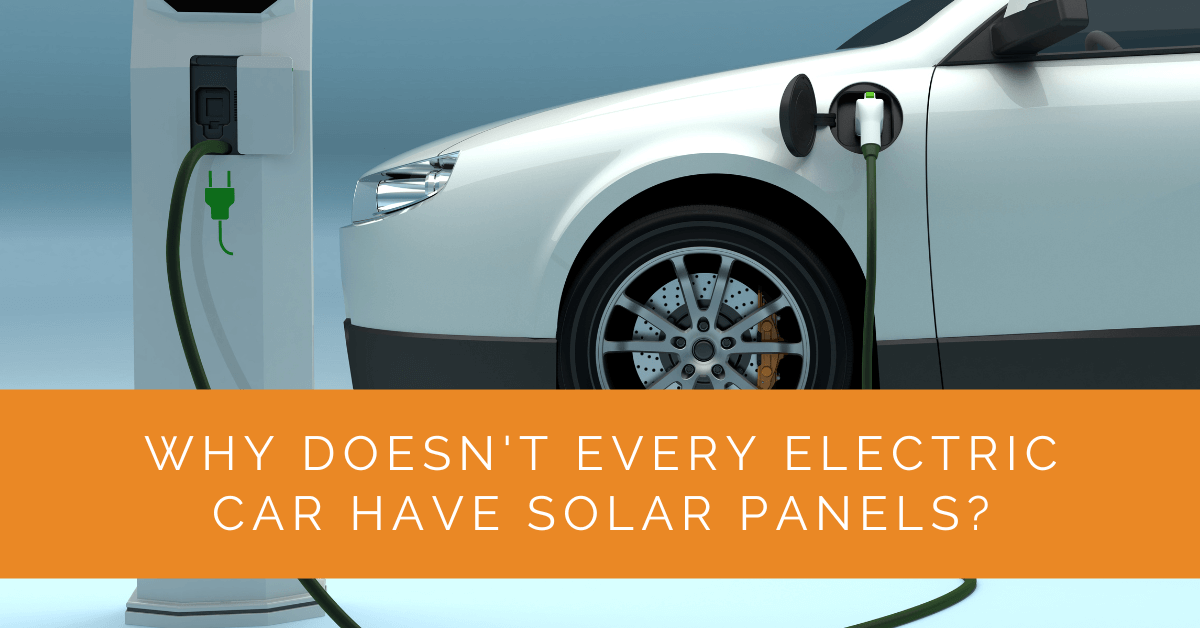Electric vehicles (EVs) have gained significant popularity recently due to their eco-friendly nature and potential to reduce carbon emissions. While EVs offer numerous benefits, integrating solar panels into their design raises the question: Why doesn’t every electric car have solar panels? In this article, we will explore the reasons behind this and delve into the factors that influence the adoption of solar panels in EVs.
Contents
Key Takeaways
- Cost considerations, technological limitations, space constraints, and design challenges influence the limited adoption of solar panels in electric cars.
- While solar panels offer sustainability and extended driving range, their integration faces hurdles such as limited surface area, efficiency, and the need to balance environmental benefits with manufacturing processes.
- Collaborative efforts, research, and innovations are underway to address these challenges and pave the way for the widespread integration of solar panels in electric vehicles, contributing to a greener and more sustainable future.
Harnessing the Power of the Sun
Solar panels have the potential to revolutionize the way we power electric vehicles. By capturing sunlight and converting it into electricity, these panels can provide a supplementary source of energy to help charge the EV’s battery. Modern solar panels are highly efficient and can generate substantial power from even small surface areas.
The Benefits of Solar Panels in Electric Vehicles
Integrating solar panels into electric cars offers several advantages. Firstly, it enhances the vehicle’s sustainability by reducing reliance on non-renewable energy sources. Secondly, it extends the driving range of EVs. While the panels may not provide enough power to charge the battery fully, they can help maintain the charge and increase the overall mileage.
How Solar Panels Work in EVs
Solar panels used in electric vehicles are typically installed on the car’s roof, forming a solar roof. These panels consist of photovoltaic cells that absorb sunlight and convert it into direct current (DC) electricity. The DC electricity is then converted into alternating current (AC) through an inverter, making it compatible with the car’s electrical system. This energy can be used to power various components of the EV, including the battery, motor, and auxiliary systems.
Efficiency and Energy Conversion Challenges
While solar panels have immense potential, there are challenges in harnessing solar power efficiently in electric cars. The limited surface area of a car’s roof restricts the number of solar panels that can be installed, affecting the overall power generation. Additionally, not every part of the world receives direct sunlight throughout the year, making it difficult to rely solely on solar energy for EV charging. Furthermore, the energy conversion process from DC to AC and its subsequent usage in the vehicle involves some power loss, further impacting the overall efficiency.

Factors Influencing the Adoption
Several factors contribute to the limited adoption of solar panels in electric cars. Let’s examine some of these factors:
Cost Considerations
Solar panel technology has evolved significantly, but it remains relatively expensive. The cost of manufacturing, integrating, and maintaining solar panels in electric vehicles adds to the overall price, which may deter potential buyers. However, as technology progresses and economies of scale are achieved, we can expect the cost of solar panels to decrease, making them more accessible in the future.
Technological Limitations
Although solar panel technology has improved, technical challenges still exist. The efficiency of solar panels in converting sunlight into electricity is a crucial factor. Research and development efforts continue to focus on enhancing the efficiency of solar cells, ensuring maximum power generation from limited surface areas. We can expect solar panels to become more viable in EVs as advancements are made.
Space Constraints and Design Challenges
Electric cars come in various shapes and sizes, and the available surface area on their roofs may vary. Limited space on the roof poses a challenge when installing solar panels with adequate capacity. Design considerations also play a role since solar panels must blend seamlessly with the car’s aesthetics without compromising its structural integrity.
Sustainability and Environmental Impact
While solar panels offer clean energy generation, assessing their environmental impact holistically is essential. A life cycle analysis of solar panels reveals that their production and disposal processes involve certain environmental implications. However, the environmental benefits outweigh the manufacturing concerns compared to the overall carbon emissions reduction achieved by using solar-powered electric vehicles. It is crucial to balance the positive impact of solar panels and their sustainable manufacturing and disposal practices.
Recycling and Disposal Concerns
Properly recycling and disposal of solar panels are important to ensure environmental sustainability. While solar panels have a long lifespan, they eventually end their operational life. Recycling processes can recover valuable materials and reduce waste. Efforts are underway to develop efficient recycling techniques to minimize the environmental impact of solar panels. By implementing effective recycling practices, we can further enhance the sustainability of solar-powered EVs.
Balancing Environmental Benefits with Manufacturing Processes
Manufacturing solar panels involves energy-intensive processes that may have environmental consequences. However, the overall reduction in greenhouse gas emissions achieved by solar-powered EVs offsets the carbon footprint associated with their production. Ongoing research focuses on developing greener manufacturing methods, such as using renewable energy sources during production, to ensure the sustainable integration of solar panels in electric vehicles.

Innovations and Progress
Despite the challenges, the automotive industry and researchers are actively working towards integrating solar panels into electric cars. Collaborative efforts among automakers, solar technology companies, and research institutions have made significant progress in this field.
Collaborative Efforts in the Automotive Industry
Leading automotive manufacturers, such as Tesla and Toyota, have made strides in incorporating solar panels into their electric vehicle designs. Tesla’s solar roof option offers a sleek and integrated solution, utilizing solar energy to power various vehicle systems. Toyota has also experimented with solar panels on the roofs of their hybrid vehicles to supplement their charging capabilities. Such initiatives highlight the automotive industry’s commitment to harnessing the potential of solar power in EVs.
Research and Development in Solar-Powered EVs
Researchers continue to explore innovative approaches to improve the efficiency and practicality of solar panels in electric cars. Advancements in solar cell technologies, such as perovskite and thin-film solar cells, show promise in enhancing power generation from limited surface areas. Additionally, efforts are being made to develop solar panels that can be integrated into other parts of the vehicle, such as the windows or body panels, further increasing the solar power potential.
Integration of Used Solar Panels
Another avenue being explored is using used solar panels in electric vehicles. While a panel may not be efficient enough for stationary solar installations, it can still provide valuable energy generation in the context of an EV. We can reduce waste and extend their lifespan by repurposing used panels, making solar-powered EVs even more sustainable.
Expert Insights From Our Solar Panel Installers About Electric Cars and Solar Panels
Integrating solar panels into electric vehicles is a promising yet complex challenge. As installers, we understand the importance of maximizing efficiency within the limited space available on a car’s roof. Solar panels can significantly extend the driving range, but their current efficiency and cost are limiting factors.
Senior Solar Panel Installer
One of the critical considerations in installing solar panels on electric vehicles is the balance between aesthetics and functionality. Our experience shows that while seamless integration is possible, it often requires innovative design solutions to ensure the panels do not compromise the vehicle’s look and structural integrity.
Lead Solar Technician
The environmental impact of manufacturing and disposing of solar panels cannot be overlooked. In our projects, we prioritize sustainable practices and advocate for advances in recycling technologies to minimize the ecological footprint of solar panel production and end-of-life disposal.
Sustainability Coordinator
Experience Solar Excellence with Us!
Trust in Solar Panels Network USA, where our seasoned experts deliver top-quality solar solutions for homes and businesses nationwide. With a legacy of countless successful installations and a commitment to sustainable energy, we’re your reliable partner in the solar journey. Ready for a brighter, eco-friendly future? Call us now at (855) 427-0058 and harness the power of the sun!
Conclusion
Solar panels can revolutionize how we power electric vehicles, offering sustainability and an extended driving range. However, the limited adoption of solar panels in EVs can be attributed to cost considerations, technological limitations, space constraints, and design challenges. While there are challenges to overcome, collaborative efforts, research, and innovation are paving the way for integrating solar panels into electric cars. As technology advances and economies of scale are achieved, we can expect solar-powered EVs to become increasingly prevalent, contributing to a greener and more sustainable future.
In conclusion, the journey towards solar-powered electric vehicles is ongoing, with great potential for environmental benefits. As we continue to explore and overcome the challenges, integrating solar panels in EVs will play a crucial role in reducing our dependence on non-renewable energy sources and creating a cleaner transportation landscape for future generations.
About the Author
Solar Panels Network USA stands at the forefront of solar energy solutions, driven by a team of seasoned solar engineers and energy consultants. With over decades of experience in delivering high-quality solar installations and maintenance, we are committed to promoting sustainable energy through customer-centric, tailored solutions. Our articles reflect this commitment, crafted collaboratively by experts to provide accurate, up-to-date insights into solar technology, ensuring our readers are well-informed and empowered in their solar energy decisions.

